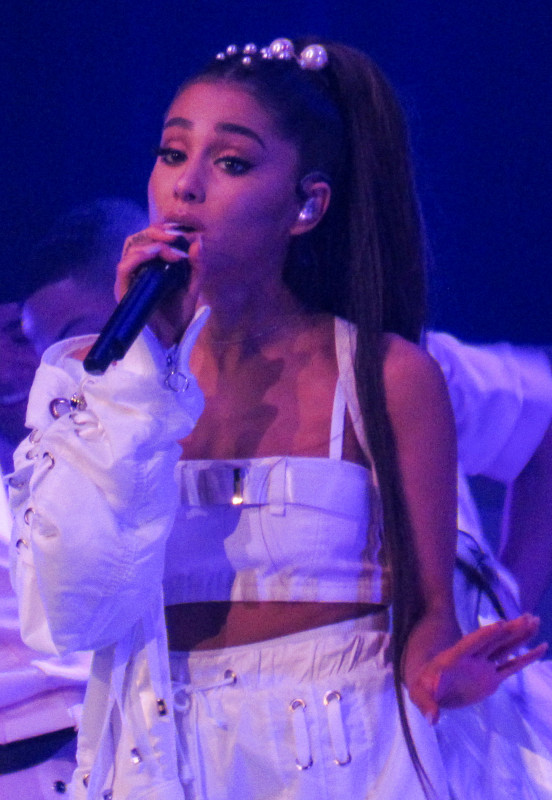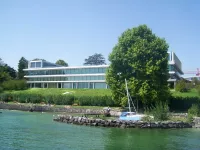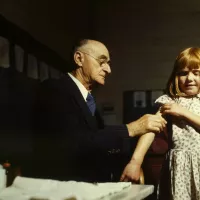Manchester is a city and metropolitan borough in Greater Manchester, England. Dubbed the 'capital of the North', it became the world's first industrialized city and gained city status in 1853. The 2021 census recorded a city population of 552,000. The wider Greater Manchester area is the third-most populous metropolitan area in the UK, the largest in Northern England, with a population of 2.87 million in 2021.
1904: Victoria University of Manchester Founded
In 1904, the Victoria University of Manchester was founded, later merging to form the University of Manchester.
1906: First archaeological investigation of Mamucium fort in 1906
In 1906, the Roman fort of Mamucium was first investigated by archaeologists.
1910: Manchester United moved to Trafford
In 1910, Manchester United moved to the neighbouring borough of Trafford.
1913: Peak of cotton processing in 1913
In 1913, 65% of the world's cotton was processed in the Manchester area.
1919: Ernest Rutherford splits the atom in 1919
In 1919, Ernest Rutherford first split the atom at the University of Manchester.
1919: Discovery of the nuclear atom at the University of Manchester
In 1919, Ernest Rutherford led a team at the University of Manchester that discovered the nuclear atom, marking the beginnings of nuclear physics.
1920: Arson in 1920
In 1920, arson was committed.
1931: Manchester Grammar School moved to Fallowfield
In 1931, Manchester Grammar School relocated to Old Hall Lane in Fallowfield, south Manchester, in order to accommodate its increasing number of students.
1931: Incorporation of Wythenshawe into Manchester in 1931
In 1931, areas south of the River Mersey, including Wythenshawe, were incorporated into Manchester.
1931: Cheshire civil parishes added in 1931
In 1931, the Cheshire civil parishes of Baguley, Northenden and Northen Etchells from the south of the River Mersey were added to the City of Manchester.
1933: More areas added to the city in 1933
Between 1890 and 1933, more areas were added to the city.
1939: Series of explosions in 1939
In 1939, there was a series of explosions.
December 1940: Christmas Blitz in December 1940
During the Christmas Blitz in December 1940, Manchester experienced heavy bombing, resulting in significant damage and casualties.
1940: Air raids on Manchester in late 1940
By late 1940, Manchester was experiencing air raids by the Luftwaffe, targeting non-military locations.
1944: Eric Williams on Manchester's dependence on triangular trade in 1944
In 1944, historian Eric Williams stated that Manchester had a "tremendous dependence on the triangular trade".
1948: Development of the Manchester Baby
In 1948, Frederic C. Williams, Tom Kilburn and Geoff Tootill developed the world's first Stored-program computer, the Manchester Baby, at the University of Manchester.
1948: First stored-program computer developed in 1948
In 1948, Frederic C. Williams, Tom Kilburn and Geoff Tootill developed the world's first stored-program computer at the University of Manchester.
1954: BBC opened first regional TV studio outside of London
In 1954, the BBC opened its first regional BBC Television studio outside London, Dickenson Road Studios, in Manchester.
1954: Granada Television based in Manchester
Since 1954, the ITV franchise Granada Television has been based in Manchester.
1956: University of Manchester Institute of Science and Technology Founded
In 1956, the University of Manchester Institute of Science and Technology was founded, later merging to form the University of Manchester.
1961: Job losses in manufacturing between 1961 and 1983
Manchester lost 150,000 jobs in manufacturing between 1961 and 1983.
1963: Manchester Port Status in 1963
By 1963, the Port of Manchester was the third largest in the UK.
1964: Management functions of The Guardian moved to London
In 1964, many of the management functions of The Guardian newspaper were moved to London.
1964: First edition of Top of the Pops
The first edition of Top of the Pops was broadcast on New Year's Day 1964 from Dickenson Road Studios in Manchester.
1965: Manchester Business School Offered First MBA Course
In 1965, the Manchester Business School offered the first Master of Business Administration (MBA) course in the UK.
1968: Closure of the Cotton Exchange in 1968
In 1968, the Cotton Exchange in Manchester closed.
1970: Manchester Polytechnic Formed
In 1970, Manchester Metropolitan University was formed as Manchester Polytechnic through the merger of three colleges.
1972: Local Government Act 1972
In 1974, by way of the Local Government Act 1972, the City of Manchester became a metropolitan district of the metropolitan county of Greater Manchester.
1974: Manchester becomes a metropolitan district in 1974
In 1974, the City of Manchester became a metropolitan district of the metropolitan county of Greater Manchester.
1976: Manchester Grammar School Reverted to Independent Status
In 1976, Manchester Grammar School reverted to independent status after the abolition of the direct-grant system.
1979: Economic policies after 1979
After 1979, economic policies under Margaret Thatcher's government led to a reduction in heavy industry in Manchester.
1982: Closure of the Port of Manchester in 1982
In 1982, the Port of Manchester closed.
1983: Job losses in manufacturing between 1961 and 1983
Manchester lost 150,000 jobs in manufacturing between 1961 and 1983.
1984: Opening of Mamucium fort to the public in 1984
In 1984, the Roman fort of Mamucium was first opened to the public.
1988: Closure of the North West Times
In 1988, the North West Times, an attempt to launch a Northern daily newspaper, closed.
1992: Manchester Polytechnic Gained University Status
In 1992, Manchester Polytechnic gained university status and became Manchester Metropolitan University. In the same year, it absorbed Crewe and Alsager College of Higher Education.
1992: Two bombs in 1992
In 1992, two bombs went off.
1994: University of Manchester becomes a founding member of the Russell Group
In 1994, The University of Manchester became a founding member of the Russell Group, which comprises 24 universities.
1995: Manchester member of English Core Cities Group since 1995
Manchester has been a member of the English Core Cities Group since its inception in 1995.
June 1996: IRA Lorry Bombing in June 1996
On 15 June 1996, the Provisional Irish Republican Army (IRA) detonated a lorry bomb in Corporation Street, causing extensive damage and injuries. The cost of the immediate damage was initially estimated at £50 million (equivalent to £119,000,000 in 2023).
1996: Manchester's bid for the 1996 Olympic Games
In 1996, Manchester's bid to host the Olympic Games was unsuccessful, losing to Atlanta.
1996: IRA bombing in 1996
In 1996, an IRA bombing led to extensive investment and regeneration in Manchester.
1996: Redevelopment after the 1996 IRA bombing
Spurred by investment after the 1996 IRA bombing, The Printworks was redeveloped after being closed. The Corn Exchange was also heavily damaged in the 1996 IRA bombing.
1996: City regeneration after 1996 IRA bombing
The city has been praised for its urban regeneration after the 1996 IRA bombing, including repurposing buildings like the Corn Exchange.
2000: Channel M Operated
From 2000, Channel M, a Manchester television channel owned by the Guardian Media Group, operated.
2000: Manchester's bid for the 2000 Olympic Games
In 2000, Manchester's bid to host the Olympic Games was unsuccessful, losing to Sydney.
2002: Manchester hosts the 2002 Commonwealth Games
In 2002, Manchester was the host city for the Commonwealth Games.
2002: City of Manchester Stadium built for Commonwealth Games
In 2002, the City of Manchester Stadium was built in east Manchester for the Commonwealth Games.
2002: Sporting facilities built for the Commonwealth Games
In 2002, various sporting facilities, including the City of Manchester Stadium, National Squash Centre, and Manchester Aquatics Centre, were constructed for the Commonwealth Games.
2003: City of Manchester Stadium Reconfigured
In 2003, the City of Manchester Stadium was reconfigured as a football ground after hosting the 2002 Commonwealth Games.
2004: Isolation of Graphene
In 2004, Andre Geim and Konstantin Novoselov first isolated graphene at the University of Manchester.
2004: The University of Manchester Created
In 2004, the University of Manchester was created through the merger of Victoria University of Manchester and the University of Manchester Institute of Science and Technology.
July 2005: First suicide bombing since July 2005 London bombings
The Manchester Arena bombing on 22 May 2017, was the first suicide bombing in Britain since the 7 July 2005 London bombings.
October 2006: Closure of the North West Enquirer
In October 2006, the North West Enquirer, a regional newspaper for the North West, folded.
2006: Completion of the Beetham Tower in 2006
In 2006, the 47-storey Beetham Tower was completed.
January 2007: Supercasino license in January 2007
In January 2007, Manchester was licensed to build the UK's only supercasino.
2007: Changed UK threat level since 2007
The Manchester Arena bombing on 22 May 2017, caused the UK's threat level to change to "critical" for the first time since 2007.
February 2008: Supercasino plans abandoned in February 2008
In February 2008, plans to build the UK's only supercasino in Manchester were abandoned.
2008: Manchester hosted UCI Track Cycling World Championships and FINA World Swimming Championships
In 2008, the velodrome in Manchester hosted the UCI Track Cycling World Championships for a record third time, and the Manchester Arena hosted the FINA World Swimming Championships.
2008: The Guardian head office moved
Until 2008, the head office of The Guardian newspaper, founded in Manchester in 1821, was located in the city.
2009: Manchester becomes a "friendship city" of Los Angeles
Since 2009, Manchester has been a "friendship city" of Los Angeles, United States.
2010: Manchester hosted the 2010 World Lacrosse Championship
In 2010, Manchester hosted the World Lacrosse Championship.
2011: Opening of the National Indoor BMX Arena
In 2011, the National Indoor BMX Arena, with a capacity of 2,000, opened adjacent to the velodrome in Manchester.
2012: Redevelopment of the Corn Exchange in 2012
In 2012, the Corn Exchange was redeveloped and opened under its current name.
2012: Channel M closed
In 2012, the Manchester television channel, Channel M, owned by the Guardian Media Group closed.
2013: Manchester hosted 2013 Ashes series and Rugby League World Cup
In 2013, Manchester hosted the Ashes series and the Rugby League World Cup.
November 2014: Announcement of Directly Elected Mayor in November 2014
In November 2014, it was announced that Greater Manchester would receive a new directly elected mayor.
2016: Manchester has 10 licensed radio stations
As of 2016, Manchester has 10 licensed radio stations, the joint-fourth highest in the UK.
May 2017: Manchester Arena bombing in May 2017
On 22 May 2017, a suicide bombing occurred at the Manchester Arena after an Ariana Grande concert, killing 23 people and injuring over 800.
2017: Andy Burnham elected as Mayor of Greater Manchester in 2017
Andy Burnham was elected as the first Mayor of Greater Manchester in the 2017 election.
2018: Completion of South Tower of Deansgate Square project in 2018
In 2018, the 659-foot South Tower of the Deansgate Square project was completed.
2019: Manchester hosted 2019 Ashes series and Cricket World Cup
In 2019, Manchester hosted the Ashes series and the Cricket World Cup.
2019: Cheshire Campus Permanently Closed
In 2019, the Cheshire campus of Manchester Metropolitan University permanently closed.
2019: Manchester LEA ranked second to last
In 2019, the Manchester Local Education Authority (LEA) was ranked poorly in Greater Manchester and nationally based on pupils' GCSE grades in English and mathematics.
2021: Andy Burnham re-elected as Mayor of Greater Manchester in 2021
Andy Burnham was re-elected as the Mayor of Greater Manchester in the 2021 election with an increased vote share of 67%.
2021: Population of Manchester in 2021
In 2021, the census recorded Manchester's population at 552,000.
2022: Student Population of Manchester Universities
As of 2022, the three universities in Manchester have a combined population of over 80,000 students.
2023: Estimated cost of damage in 2023
The cost of the immediate damage of the IRA bombing in June 1996 was initially estimated at £50 million (equivalent to £119,000,000 in 2023).
2024: Andy Burnham re-elected for a third term in 2024
Andy Burnham was re-elected in the 2024 election for a third term with 63% of the vote.
2024: Budget for Greater Manchester Combined Authority in 2024
As Mayor of Greater Manchester, Burnham is responsible for the Greater Manchester Combined Authority, with a budget of £2.6bn in 2024.
Mentioned in this timeline

Ariana Grande-Butera is a highly influential American singer songwriter and...
The United States of America is a federal republic located...

Christmas is an annual festival celebrated on December th commemorating...
The Guardian is a British daily newspaper founded in as...

Los Angeles is the most populous city in California and...

Football is a family of team sports primarily involving kicking...
Trending
21 minutes ago Pokemon Celebrates 30 Years: A Cultural Phenomenon with Multimillion-Dollar Cards

22 minutes ago Daylight Saving Time 2026: Prepare to set your clocks forward and lose sleep.

22 minutes ago Indiana Investigates CenterPoint Energy Amid Bill Concerns and New Utility Law.

22 minutes ago Galatasaray's Champions League opponent revealed; Liverpool legend comments on Juventus match; Real Madrid faces Man City.

2 hours ago Google Maps to fully function in South Korea after data agreement.

3 hours ago CDC Panel to Discuss COVID-19 Vaccine Injuries Following RFK Jr.'s Meeting
Popular

Jesse Jackson is an American civil rights activist politician and...

Barack Obama the th U S President - was the...

Susan Rice is an American diplomat and public official prominent...

XXXTentacion born Jahseh Dwayne Ricardo Onfroy was a controversial yet...

Michael Joseph Jackson the King of Pop was a highly...

Kashyap Pramod Patel is an American lawyer who became the...